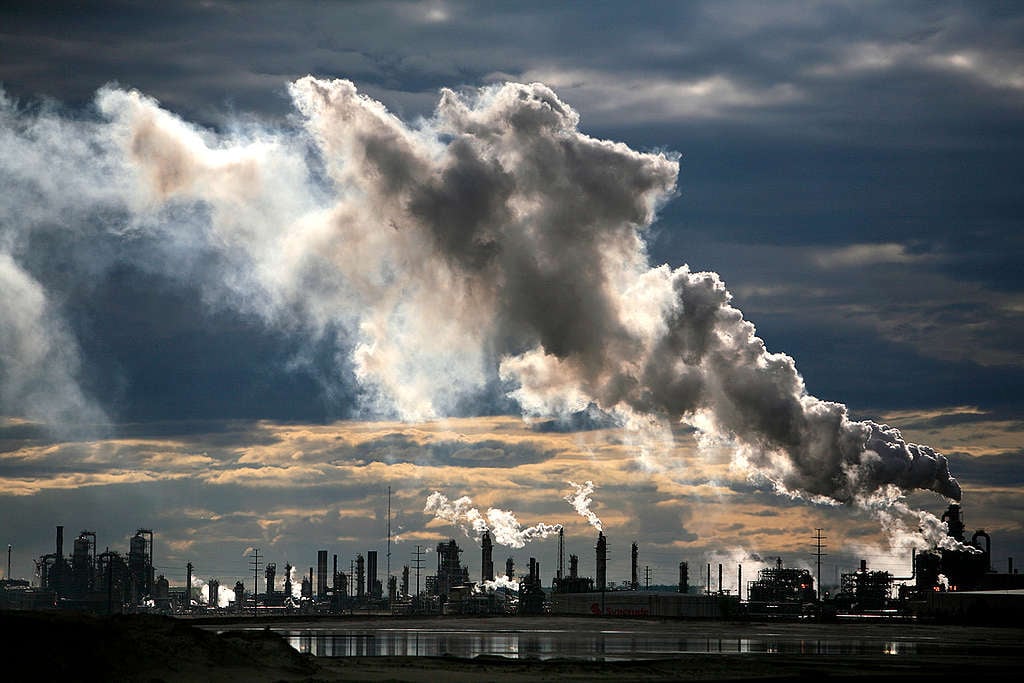
This week, Greenpeace Canada made a submission to the federal government’s Strategic Assessment of Climate Change. In it, we argue that using forests as an excuse for big polluters to keep pumping out greenhouse gases would be a disaster for Canada’s climate ambitions and is no solution to global biodiversity loss.
So-called “offsets” (aka “excuses to pollute”) will also be a key issue at the imminent COP in Glasgow during which nations will debate whether or not to open the global markets to this dangerous threat to real climate action.
But what exactly are offsets? How do they threaten our efforts to prevent climate change? And what is the alternative? Read on.
Offsets from the forest
“Offsetting” is where companies and governments try to meet their greenhouse gas reduction targets while still emitting them.
A “carbon offset” describes an amount of greenhouse gas emissions that is avoided or sequestered in order to compensate for emissions occurring elsewhere.This allows big polluters to continue to emit massive amounts of greenhouse gases on the shaky assumption that they will somehow be balanced out.
In the case of forest offsets, this usually refers to an area of forest protected or trees planted to make up for ongoing pollution into the atmosphere.
So an oil company might pay someone else to plant some trees or say they’re protecting a forest that otherwise would have been logged, then continue to emit carbon but claim it’s been saved elsewhere. Makes sense right? Of course not.
Thankfully a number of journalists and activists have been digging further into this self-serving “solution” to climate change and some terrible case studies have been exposed. See: Doubts over Shell’s ‘drive carbon neutral’ claim and A Top U.S. Seller of Carbon Offsets Starts Investigating Its Own Projects..
Forests are no excuse to pollute
Using Canadian forests as an excuse to keep emitting greenhouse gases is terrible public policy. Here’s a few reasons why.
First and foremost, the fundamental premise is flawed – big polluters using their climate-driven profits buying up nature so they can keep on polluting. The very same companies who got us into this mess by irresponsibly using our shared natural resources in the first place.
Second, Canada’s forests are in rough shape thanks to climate change, chronic mismanagement by the logging industry and inaction by governments to protect them. As a result, they have already turned them into net emitters.
So while forests are one of our best allies in the fight against climate change, we must understand that there are limits to their ability to remove carbon dioxide and that they are simply unable to offset Canada’s huge industrial emissions. We need to use the limited additional carbon we can sequester in forests to offset our past fossil fuel emissions, not enable tomorrow’s pollution.
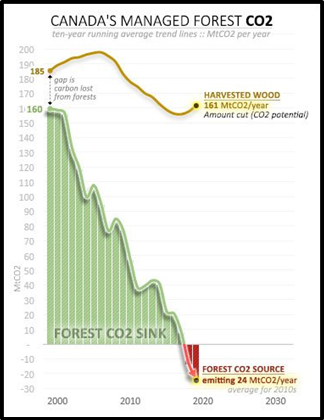
There are also significant problems with these types of offsets in practice. For example:
- Impermanence: Any benefits from offsetting carbon with forests are only as certain as the future of the forests themselves — which is to say, not at all, given climate change’s impact on forests and increased natural or man-made dangers (fires, logging, droughts, pests). The benefits of phasing out fossil fuels and keeping all that carbon in the ground instead of burning it are, by contrast, permanent.
- Timing: Fossil fuel emissions happen immediately, while tree growth takes decades and longer. If we continue our current fossil fuel use we create a time lag that fuels higher temperature increases and larger climate impacts before atmospheric CO2 can be reduced.
- Leakage: at a global level, protecting forests in one location can be undermined if it only serves to cause logging or deforestation elsewhere.
- Additionality: Carbon offset proponents assume that forests would be destroyed without their intervention. How can we be sure that a ‘carbon offset’ forest wasn’t going to be conserved or restored anyway?
A global threat to COP success
Most of the “rulebook” for how 2015’s Paris Agreement is implemented has now been agreed. But one of the key outstanding areas is Article 6. It covers a single page, just nine paragraphs, but is deeply contentious. The rules for Article 6 will be nailed down in Glasgow.
The most controversial aspect of Article 6 is the proposal for new global carbon markets to allow the trading of emissions reductions created anywhere in the world by the public or private sector. Carbon credits could, for example, be generated by planting trees or buying up existing forests, as a way to ‘offset’ a dirty power project on the other side of the world.
But offsetting doesn’t stop carbon entering the atmosphere and warming our world, it just keeps it off the books of the companies responsible. In short, it’s a scam, it doesn’t work and the creation of a global market will just delay real action.
What are the real solutions?
The science is clear: to prevent this global crisis from getting worse, we need to cut greenhouse gas emissions immediately, while simultaneously protecting and restoring vast natural ecosystems.
This means saying NO to offsets and YES to ending fossil fuels.
We also need to improve the biodiversity and ecological integrity of our forests so they can become carbon sinks again while respecting that nature – and Indigenous lands – are not just a solution for carbon removal and storage. This requires much swifter progress on meeting Canada’s target of 30% protection of the land by 2030 at a minimum and empowering Indigenous leadership through Indigenous Protected and Conserved Areas (IPCAs).
Lastly, at the upcoming COP negotiations in Glasgow, Article 6 should not be interpreted as being about carbon offset markets. Greenpeace is arguing that Article 6 is about international cooperation to solve climate change and support the provision of finance, technology transfer, and capacity building.
The Canadian government has some big decisions to make, at home and internationally, in the coming months – more excuses to pollute or real climate action. It really is that simple.
Canada’s new Minister of Environment and Climate Change is currently at COP26 with Justin Trudeau. Send him a message: tell him to say NO to carbon offsets as an excuse to pollute, and YES to end fossil fuels!


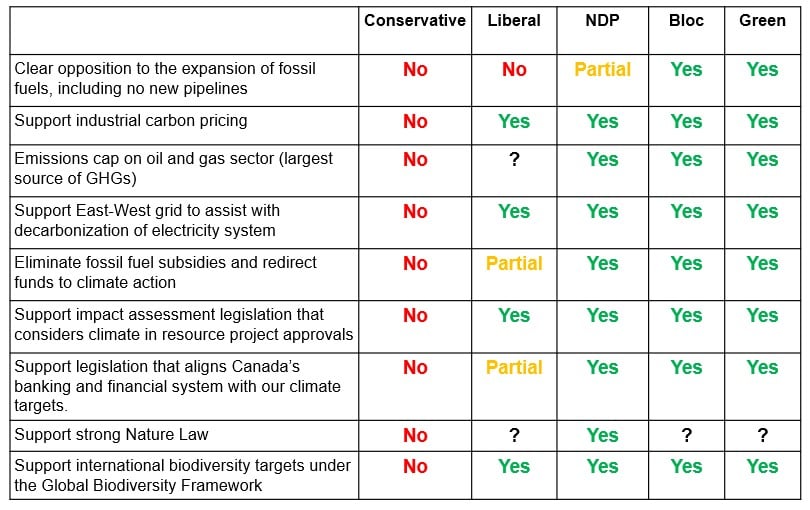
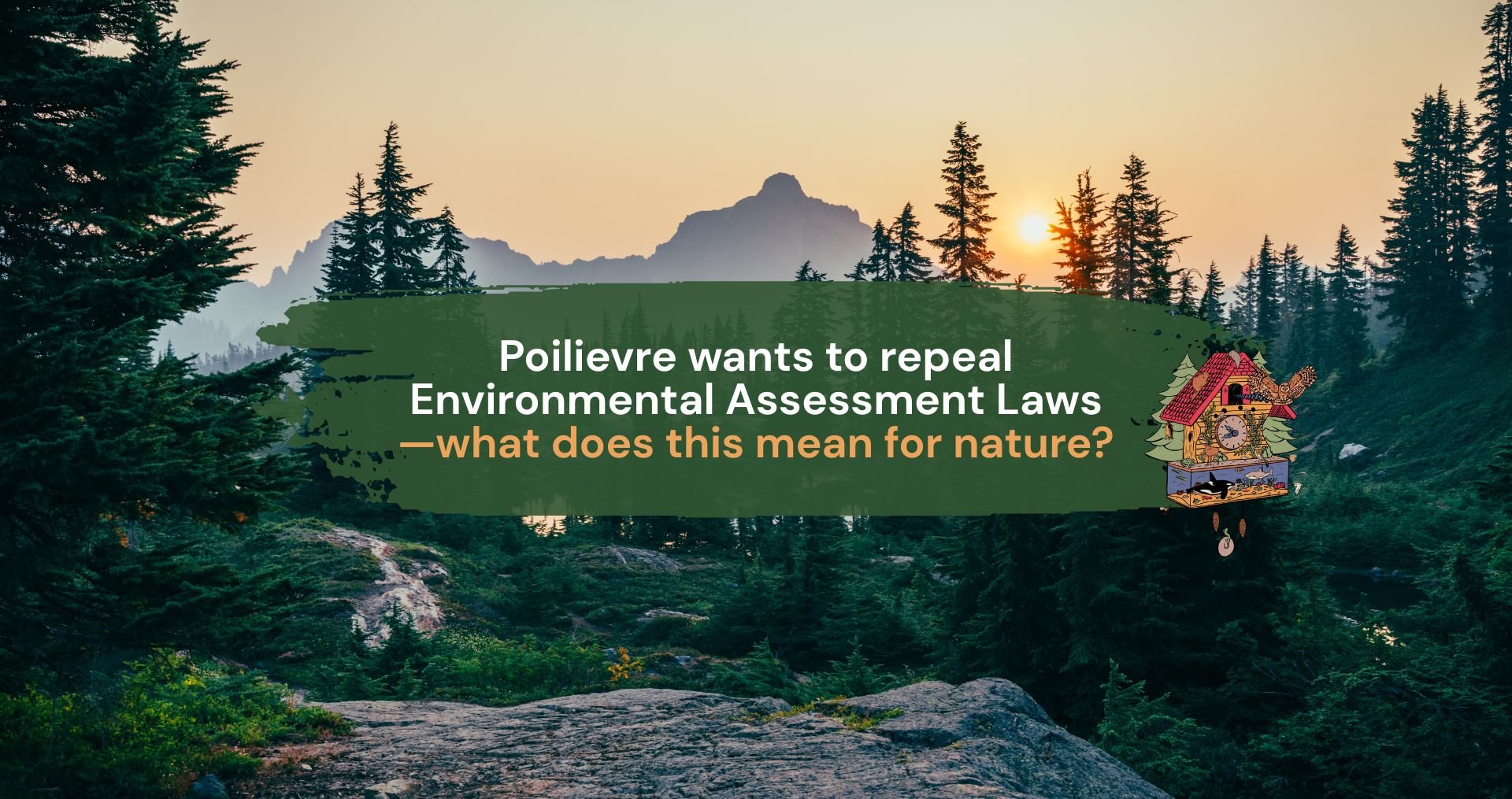
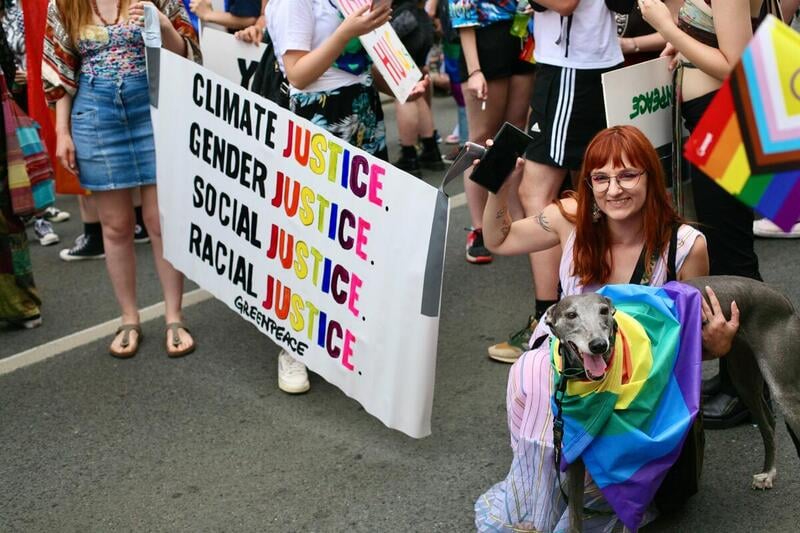
Discussion
Excellent and very-well researched article. Will be using it in my own work.